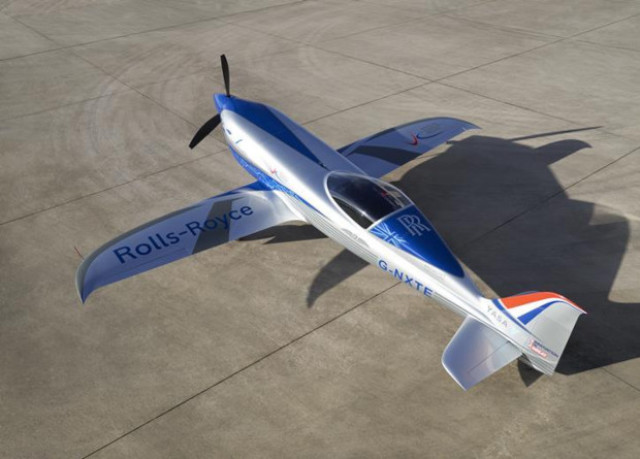The British company Rolls-Royce has completed ground tests of a prototype of the high-speed electric aircraft ionBird, being developed as part of the ACCEL research program. According to Flightglobal, the company's specialists are currently preparing the aircraft for the first flight, which should take place before the end of March 2021.
The ACCEL project was launched in 2019 with the support of the UK Aerospace Institute of Technology. The goal of the project is to create a high-speed electric aircraft capable of flying at speeds above 260 knots (481 kilometers per hour). As part of the project, we are working on technologies that will allow us to create faster and more reliable, more electric and fully electric aircraft in the future.
As part of the project, the developers conducted separate tests of the electric motors of the aircraft with an air propeller, control systems and batteries, as well as all these systems in the aircraft. In addition, the ionBird successfully completed a series of runs on the runway, including high-speed runs, which allowed all the equipment to be checked in take-off mode. Other details of the tests were not disclosed.
The ionBird is being developed based on the airframe of the Nemesis NXT assembly sports aircraft. This aircraft is made according to the scheme of a low-wing plane with a pulling propeller in the nose. On the airframe, Rolls-Royce specialists installed three YASA electric motors with a total capacity of 400 kilowatts. The battery pack with controllers and power distribution systems for the aircraft was assembled by the British startup Electroflight.
With the help of ionBird, the developers intend to set a horizontal flight speed record among all-electric aircraft. It currently stands at 182 nodes. The record belongs to the electrified Extra 330. The developers expect that their aircraft will be able to reach a speed of at least 260 knots. It is planned to set the record before the end of the first half of 2021, shortly after the completion of flight tests of the electric aircraft.
Last spring, the Norwegian company Equator Aicraft announced the start of development of an electric racing aircraft. With this aircraft, the company intends to take part in the first race of electric aircraft Air Race E, scheduled for 2021. Ten aircraft are expected to participate in these races, which will fly at a speed of more than 400 kilometers per hour on a circular air route with a turn-to-turn length of about 1.5 kilometers.
Vasily Sychev

